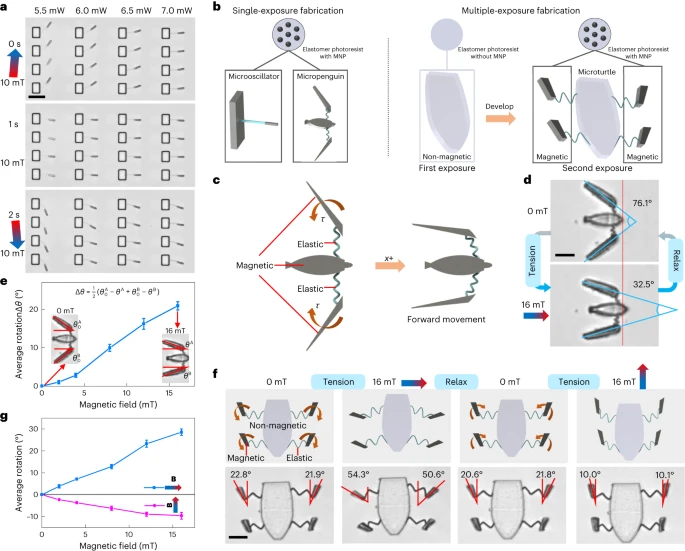
Super-compliant picospring to actuate microrobots.(PHOTO: NATURE NANOTECHNOLOGY)
A Chinese research team has developed a software microbot with super sensitivity, which is expected to perform biomedical tasks such as assessing tissue and cell biomechanics, as well as transporting and releasing cells or therapeutic cargo.
According to researchers, the “picospring”?integrated into these microbots is a super-compliant nanostructured spring system with exceptionally high sensitivity to forces at the piconewton scale. Its quantifiable compliance is sensitive to 0.5?pN (10-15N), equivalent to one-thousandth of the gravity of a single cell.
Thus, the picosprings perform micrometer-scale deformations that can be directly used to govern intricate actions of micromachines at the single-cell level within biological conditions.
In common with traditional springs, such as a bow or hairspring, the present picosprings can also power machines through the deliberate release of stored energy.?
Additionally, it can be customized and processed into any shape for the preparation of various soft microbots and flexible micro-devices by 3D nanofabrication.?
Based on this research, new minimal-invasive or even non-invasive soft micro-robotic instruments will further provide effective assistance for medical tasks, such as cell mechanics research, internal fertilization, thrombus removal, and neural intervention, according to the research team.
The trio will conduct a series of experiments in fields such as life science, fluid physics, combustion science and materials science. Notably, this is the first time that fruit flies have been taken on a Chinese space mission as experimental subjects. What made scientists choose fruit flies? What experiment will they undergo?
